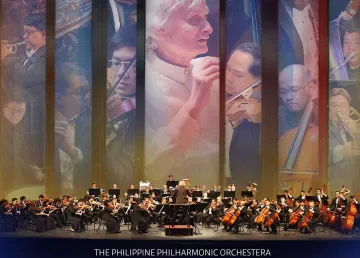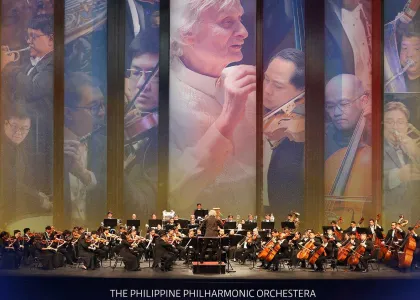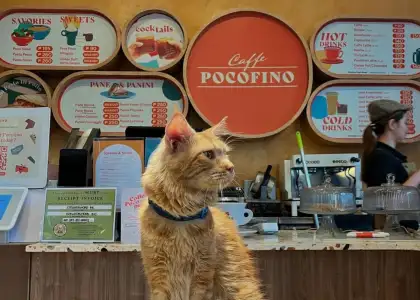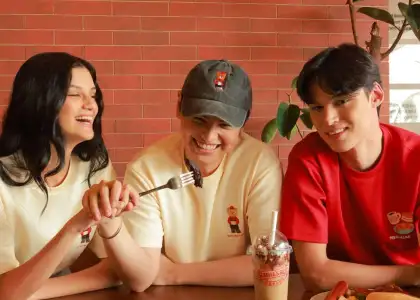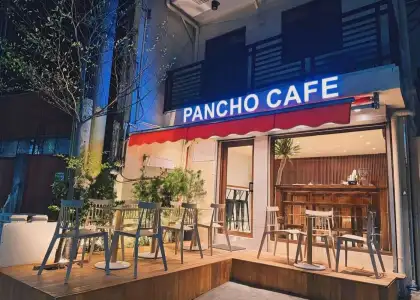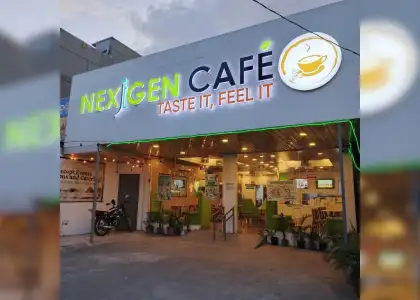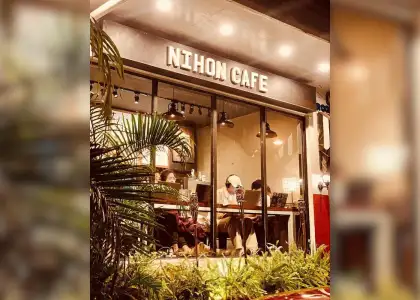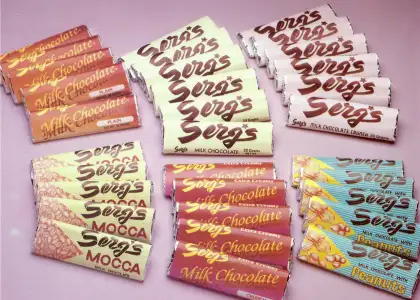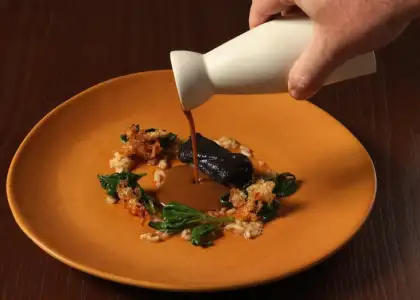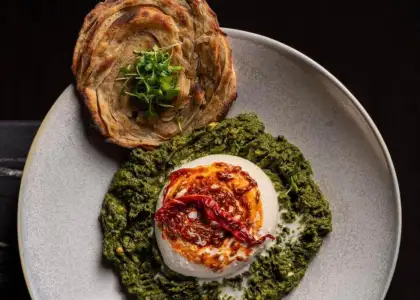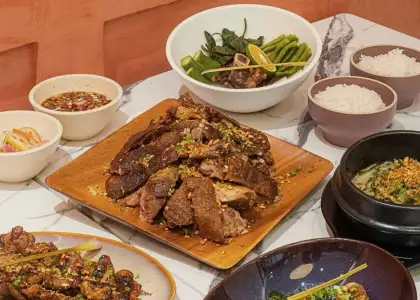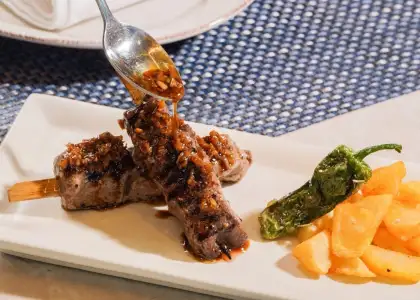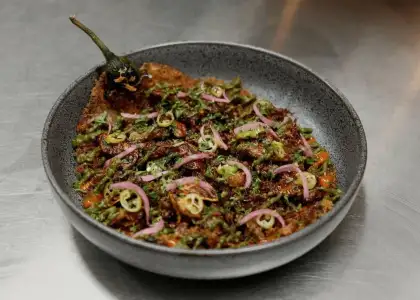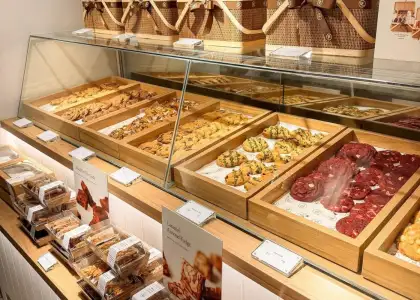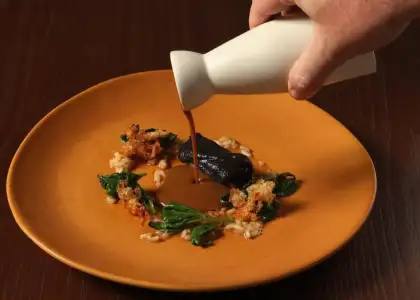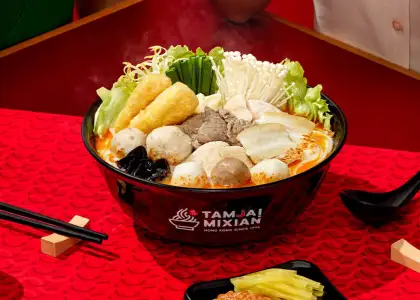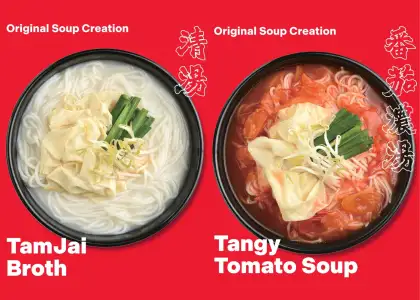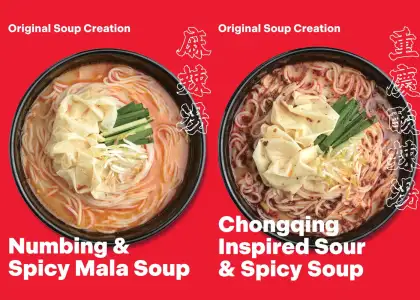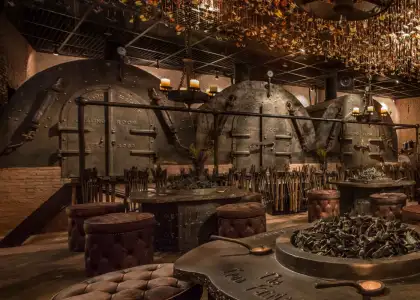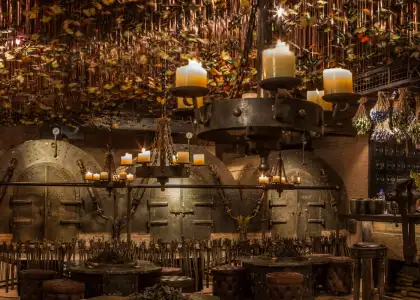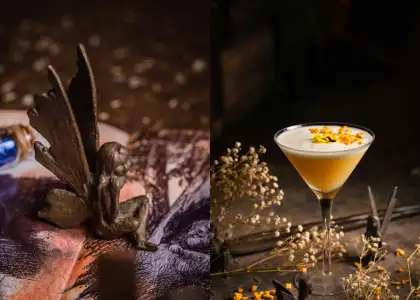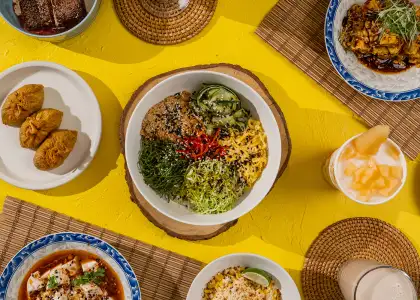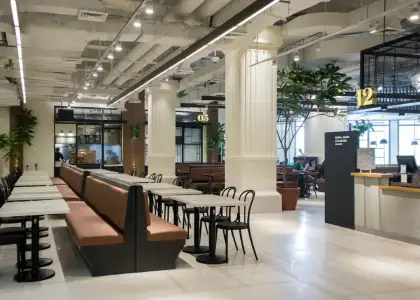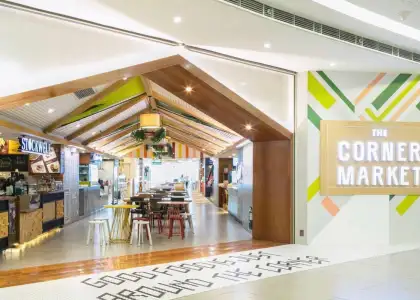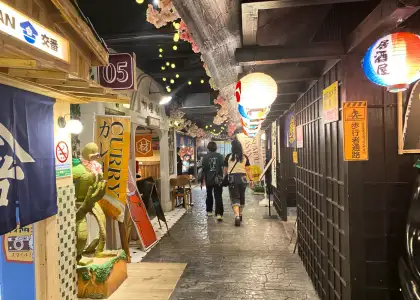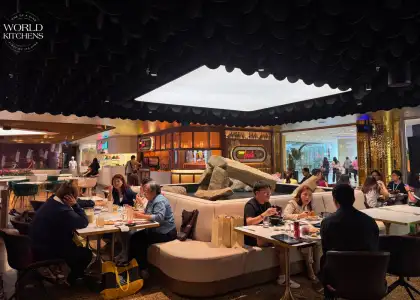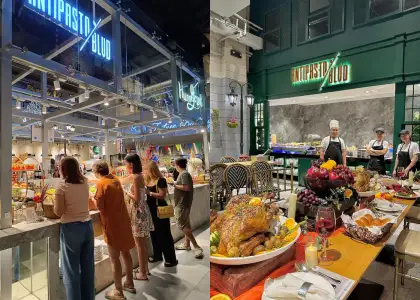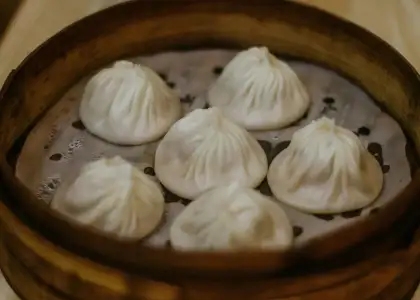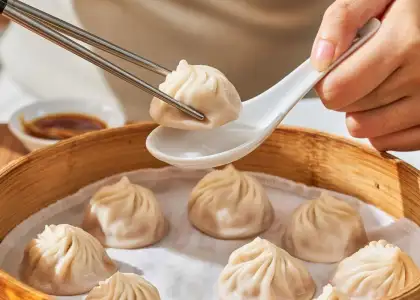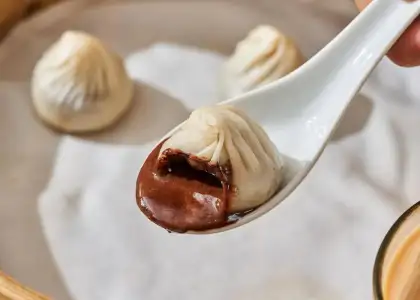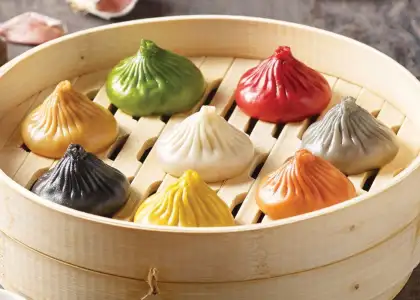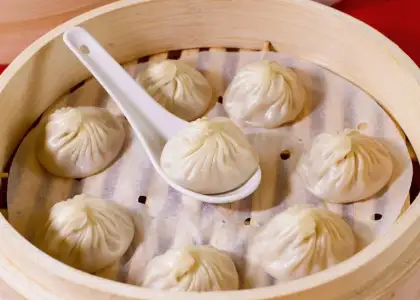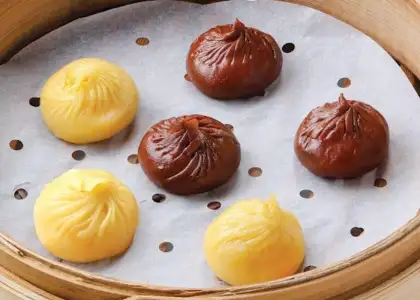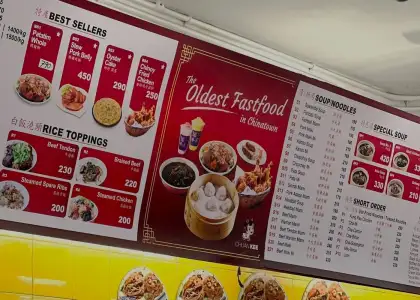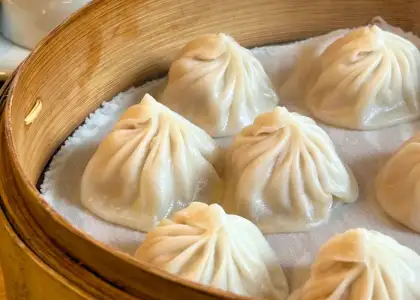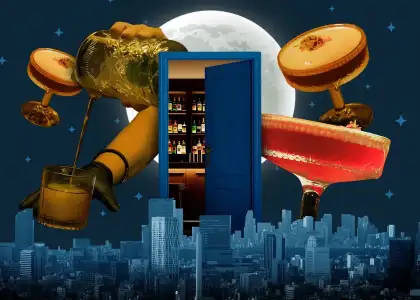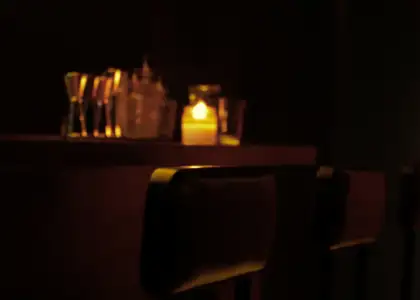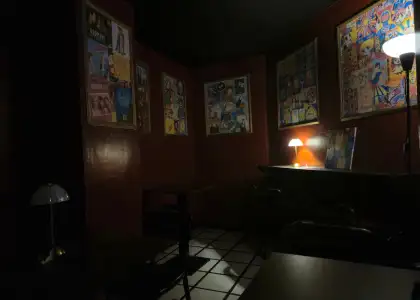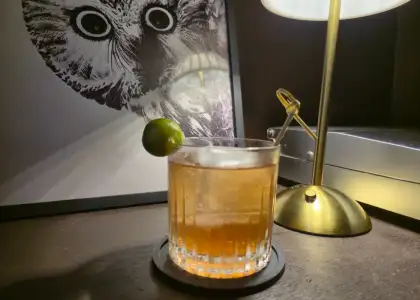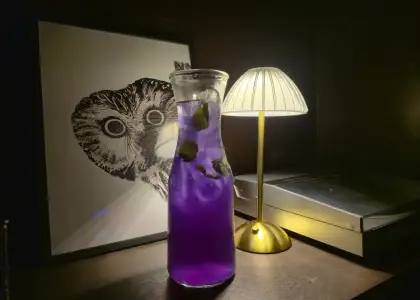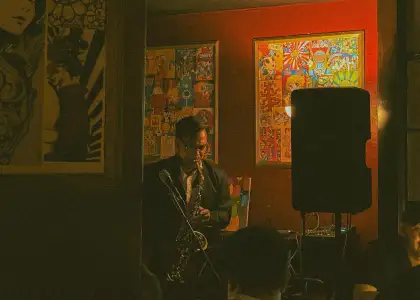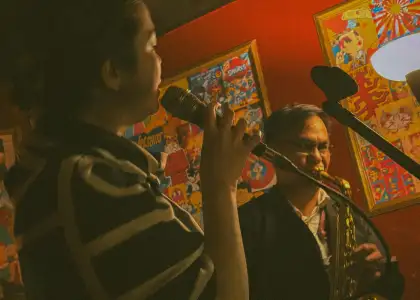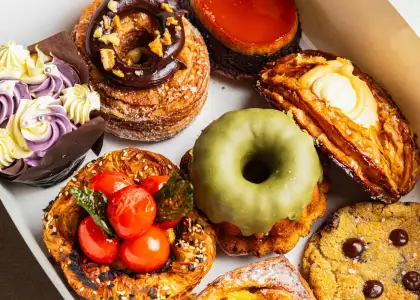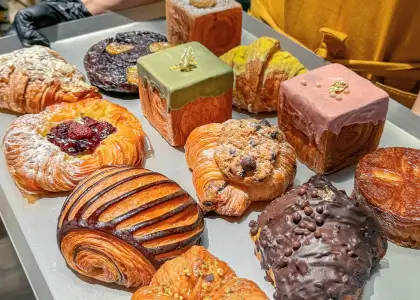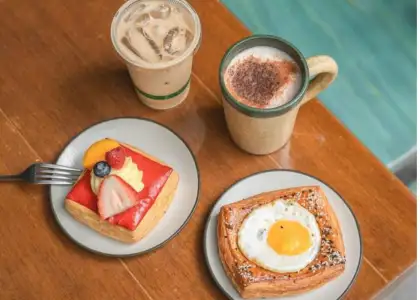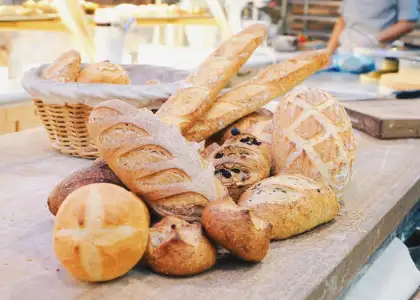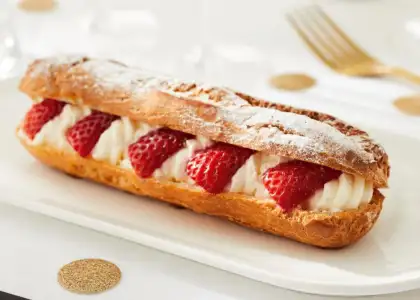Yes, Chef! Golda Ranada of Filipino-Spanish Resto Delgado.112
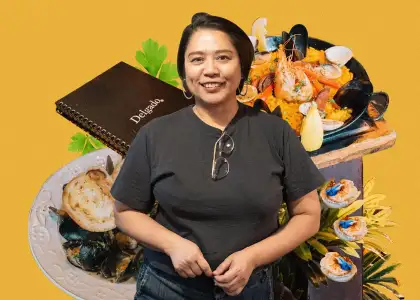
Asia is one food-crazy continent! We take great care to pick restaurants based on culinary vibes, rankings on international gourmand guides, mentions in magazines, Instagrammability, and added hunger. Yes, Chef! features the region’s chefs' stories of love and labour in kitchens that has made some of our restaurants the next big thing in Asia.
To many, the kitchen is just part of a house. But for chef Golda Ranada, the kitchen is her definition of a home.
She began her training as a student at the University of the Philippines-Diliman, where she landed her apprenticeship at Le Souffle Wine Bar and Restaurant. She later worked her way up the ladder, taking on roles as sous chef, food consultant, and executive chef. Now the head chef at Delgado.112 — a gem along the restaurant-laden Tomas Morato — Golda is one of the industry’s revered chefs, looked upon by many for her classic cooking style and expertise in conceptualizing a restaurant’s menu.
When not cooking, chef Golda teaches students how to cook. At home, she and her husband, Rudolf Ranada (who, by the way, is also a chef!), get busy in the kitchen by experimenting with old and new dishes.
The Beat Asia caught up with chef Golda to talk about her journey, her hopes for the local restaurant industry, and the top three dishes that make her mouth water.
What led you to a career in the culinary space?
[During] my college years [as a] B.S. in Hotel and Restaurant Administration (BSHRA) student, I joined a competition called “Chefs on Parade” for the market basket category and my team won for our school, U.P. Diliman. Though in my younger years, I was already familiar with cooking and entertaining in our home.
Please walk us briefly through the different roles you handle/d in the kitchen.
I began my cooking career as an apprentice [after] the said competition, as most of my subjects in BSHRA were management. After graduation, I applied as a cook [for Le Souffle Wine Bar and Restaurant] as the company was already expanding. I was [then] assigned to Poppies Wine Bar as a saucier for three years. I cooked my way through as a saucier and wanted to explore more of the dynamic resto scene in the late 1990s, [so] I was able to work with Jose Sotto as his sous chef.

I was introduced to progressive continental food in Beluga Bar and Bistro and learned the management side of running a restaurant — from purchasing to receiving, production, inventories, and costing. More than anything, the progressive cuisine was a very exciting turn in my career as my cooking background was traditional brasserie/bistro food. I also became a food consultant to smaller scale restos as I was doing menu developments.
My break as an executive chef of a kitchen brigade came with Dreambar @ 6750 (2000) onto handling Max Brenner Philippines (2003). [During] this time, my husband and I also [did] personal small-scale catering for some corporate clients.
I took a leap of faith when my husband and I decided to put up our own catering business, Golden Perch Catering, in 2010 and our own restaurant, Brazo, in 2014.
How did you conceptualize the menu for Delgado.112?
I was asked to work on the rebranding of the restaurant, thus came Delgado.112.
I always create menus based on the restaurant's feel. Its aesthetics will highly co-relate with the menu, taking into account the market of the location. As the restaurant is an old Filipino colonial house, [with] adobe walls, Capiz-drawn windows, high entrances with narra, yakal floors, and banisters, I considered a friendly Spanish contemporary menu.
Through the years, some menu items were tweaked to follow the trends, especially the needs of clients at the onset of the pandemic. Now on its third tweak, Delgado.112 has more Spanish- and Filipino-laden progressive food creations (apart from the paellas and pintxos, to name a few).
There are Delgado signature dishes, which I love to do for my clients to make the menu more interesting and not mainstream.
How has your cooking style evolved over the years?
My cooking style is very classic.
Everything begins with the classic methods, and I rarely veer away from this. My flavor pairings create the variations in my menu conceptualization. If you ask if my cooking style has evolved, I [will] probably say my cooking now has more heart, [as] it does not want to conform to "what's in" but with the consciousness of what's fresh and what’s locally available. From time to time when we tweak the menu, I would introduce new flavors and imported ingredients for variations and some spark for those looking for indulgence.
Aside from being a restaurant head chef, you are also a lecturer at U.P.'s College of Home Economics. Do you think being a good chef is something one is born with, or is this something one can learn?
As [I would always say] in “Introduction to Food and Beverage Management” to my students who are non-cooks, cooking should be as basic as eating. It is a skill that one should learn at an early age.
To nourish oneself, it is imperative that one at least learn how to boil an egg [and] cook rice. To cook is to learn a basic skill.
To become a good cook, one needs to be consistent in [their] skill. Eventually, as a cook becomes more intuitive with flavors and ingredients, [they] become creative and wander from traditional dishes. A cook starts to taste and create. Then they begin to be obsessed with the cadence of the consistency and realize that to become a chef, you will also need to manage your time, resources, manpower, and clients. It's a complicated job that entails 100% passion and 100% skill. It took me 27 years to be where I am now as a cook. So, go figure!
What is your favorite dish to make? Why?
I have three.
A mean adobo with achuete. I fell in love with this version introduced to me by my husband.
My favorite Spanish dish to make is the Iberian chicken. [It’s what] started my catering business in 2010 when I served it on my menus.
And, of course, my dessert, Frozen Brazo de Mercedes, which I started making 11 years ago. It has been so well received here in Delgado.112.
What do you think of the local restaurant scene now? In your opinion, how do we compare to our Asian counterparts, such as Bangkok and Japan, which both have bustling local food scenes?
As a cook, I am glad that Filipino food is being recognized even more now. However, Filipino cuisine still has a long way to go if you compare it with Thai cuisine. If we do have a Michelin-starred restaurant in the Philippines, then maybe we can be comparable with Thailand and Japan.
What do you want to see in the local restaurant scene in 10 years?
As a cook/chef, I'd like to use more sustainable materials and ingredients to help our environment, and practice more conscientious cooking and eating.
This interview has been edited for length and clarity.
Enjoyed this article? Check out our previous Yes, Chef! articles here.
Get the latest curated content with The Beat Asia's newsletters. Sign up now for a weekly dose of the best stories, events, and deals delivered straight to your inbox. Don't miss out! Click here to subscribe.


